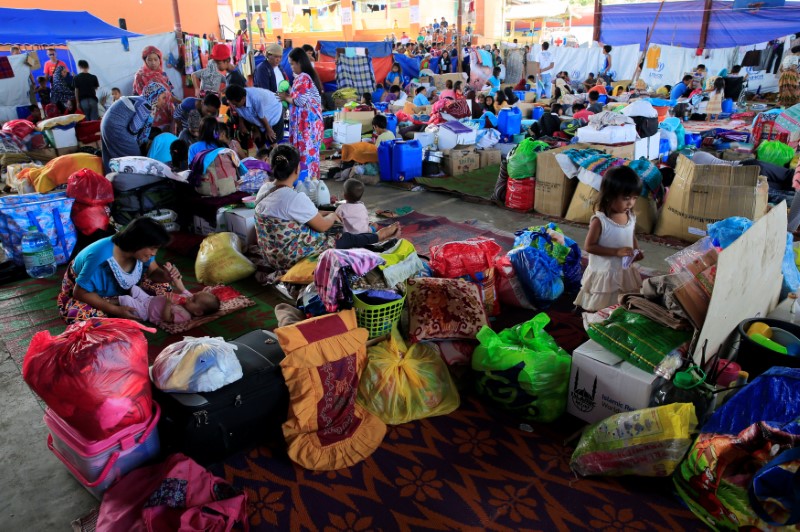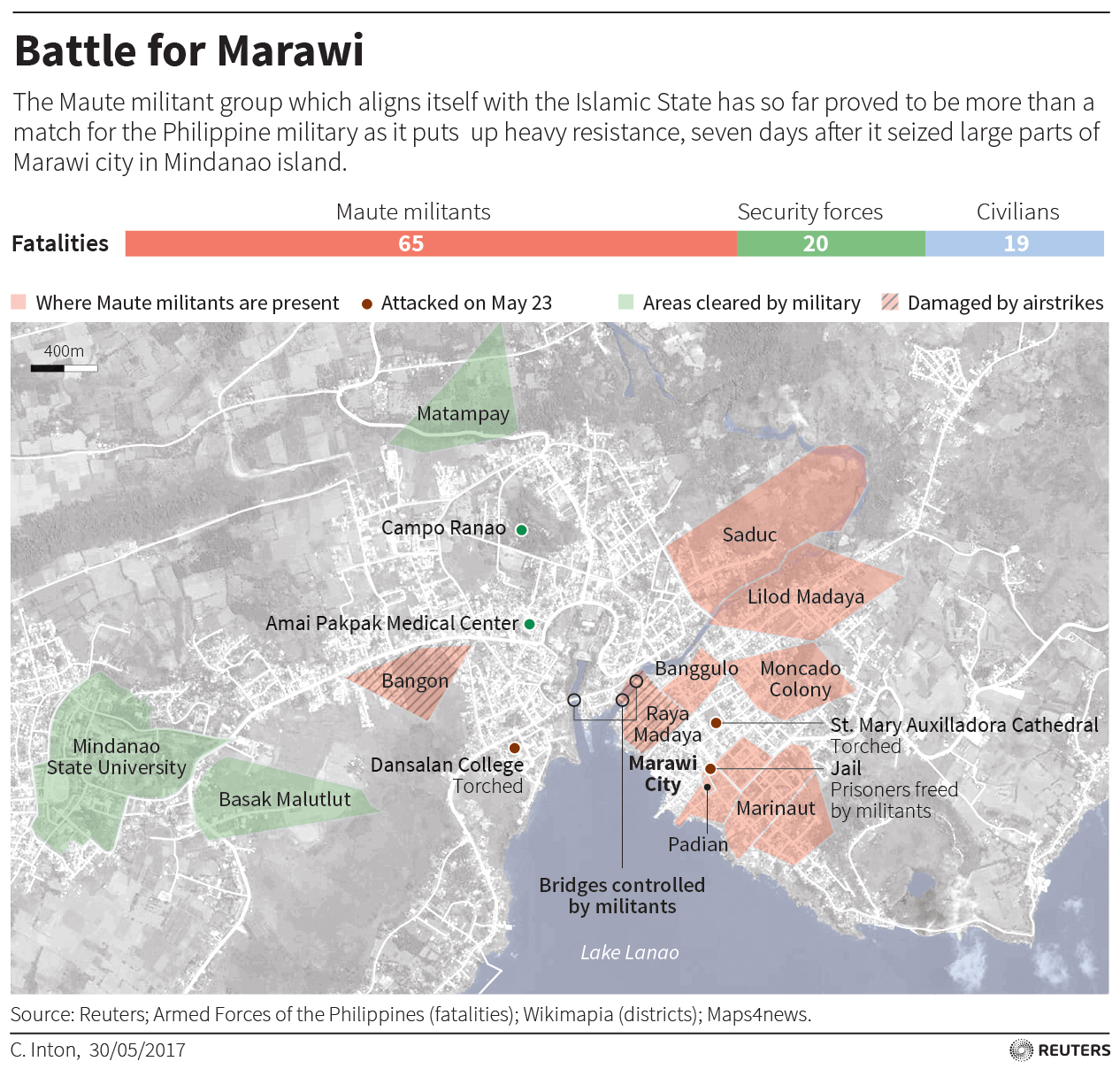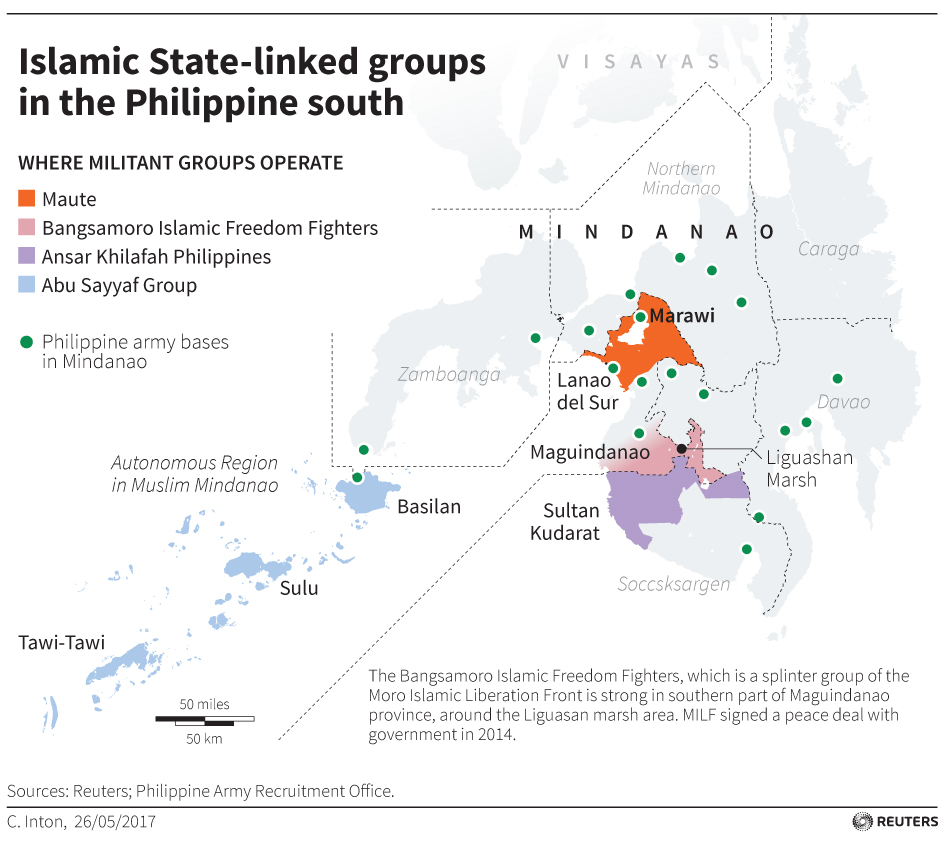
By Martin Petty
MANILA (Reuters) – Philippine President Rodrigo Duterte vowed on Monday to fast-track new legislation for autonomy in the country’s most volatile region, advancing a protracted process to end decades of rebellion and thwart rising Islamist militancy.
The Bangsamoro Basic Law (BBL) submitted to Duterte on Monday is the culmination of a rocky 20-year peace process between the government of the predominantly Christian Philippines and the Muslim separatist Moro Islamic Liberation Front (MILF).
It aims to turn predominantly Muslim parts of the southern island of Mindanao into an autonomous region with its own executive, legislature and fiscal powers.
“May I say to you my brothers … I will support and hasten this instrument as it goes to the legislature,” Duterte said in a ceremony for the handover of the bill, drawing loud applause.
“There will be no objections of the provisions of all that is consistent with the constitution and aspirations of the Moro people.”
Passage of the bill would be a major achievement for Duterte, who was a mayor in a Mindanao city for 22 years and has made peace deals with separatists and Marxist rebels a priority for his year-old government.
The bill’s submission comes at a critical time for the Philippines, as fears grow that militants allied with Islamic State have exploited disillusionment over the failure of the previous Congress to pass the law, and have used it to recruit fighters and further a radical agenda.
Rebels inspired by Islamic State have occupied the commercial heart of Marawi City, on Mindanao, through seven weeks of air strikes and battles with government troops that have killed more than 500 people and displaced 260,000, marking the country’s biggest security crisis in years.
DANGEROUS TIMES
“We live in very dangerous times… we watch with utter disgust of the destruction that violent extremism has inflicted in the city of Marawi,” MILF chairman Al Haj Ebrahim Murad said.
“These misguided people have filled the vacuum created by our failure to enact the basic law and (they) feed into the frustration of our people.”
The law, details of which were not immediately available, calls for the creation of a self-administered territory within what the Philippines called Bangsamoro, meaning “Moro nation”, referring to the southern Muslims that Spanish colonialists called “Moros”.
The bill, agreed by a panel of representatives from government, the MILF and religious groups, prescribes an elected legislative assembly, a chief minister, a cabinet, with an agreement to share natural resource revenues, stacked largely in favor of the new Bangsamoro government.
In a recent interview with Reuters in Cotabato City, Mohagher Iqbal, the MILF’s top peace negotiator, said the hope was for Congress to pass the law and a transition period to start in 2019, with elections in 2022 for an 80-seat assembly.
Iqbal said he feared the Marawi siege could complicate the passage of the law if there was a perception that the MILF and the radical Maute group fighting in Marawi were associated with each other because both hail from the same region.
“Right now we don’t really know the thinking of the people,” he said.











